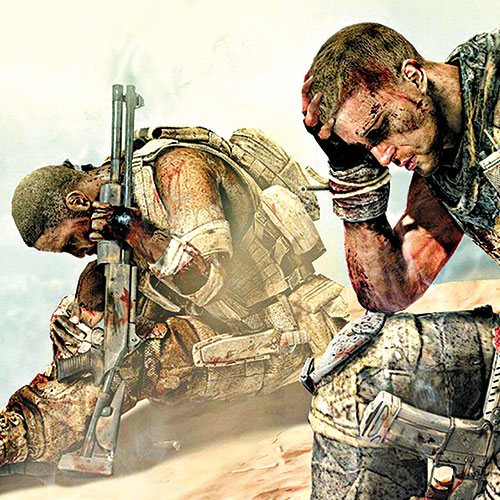Paige FTW: Why Do You Fight?

I’ve never been much of a Far Cry person, though I do own several titles (sales!). Far Cry 5 attracted a lot of attention for its topical foray into rural America. People mused that perhaps this would be the game that would offer a nuanced take on America’s divided, contentious political divide.
Of course, that did not happen — by all accounts the story is poorly written trash — but I hear you can make friends with a dog, bear and panther, which honestly sounds awesome.
It got me thinking, though: What games do manage to address real-world issues in a way that is compelling and thoughtful?
My gut answer is always the commercially unsuccessful Spec Ops: The Line, the war game that questions the very idea of war as a game. The game plays with Walker’s hallucinations as a commentary on, well, selfish “heroism.”
Everything the game throws at you attempts to persuade you to turn around, abandon the mission and stop. Yet, Walker walks on — and so do you … because you keep playing.
Ultimately, continuing to follow the narrative, continuing to play the hero, continuing to mow down soldiers is revealed to be a moral failure on the part of the player. In the end, Konrad offers you a choice: kill yourself and admit you are complicit in your own sins, or kill him (so to speak) and refuse to accept that what you have done is wrong.
You are not a hero, and the Call of Duty/Battlefield illusion of valor through violence shudders, just a little.
When you think about it, that’s a huge paradigm shift from the “support the troops” mantra that has permeated and seeped into the core of American society. Spec Ops questions not just the validity of a particular conflict, but the choice by an individual to participate in it altogether.
I don’t claim that Spec Ops is perfect or particularly nuanced with its delivery of this message, but it’s certainly a “far cry” from a game that encourages rampant, thoughtless violence — with glee.











